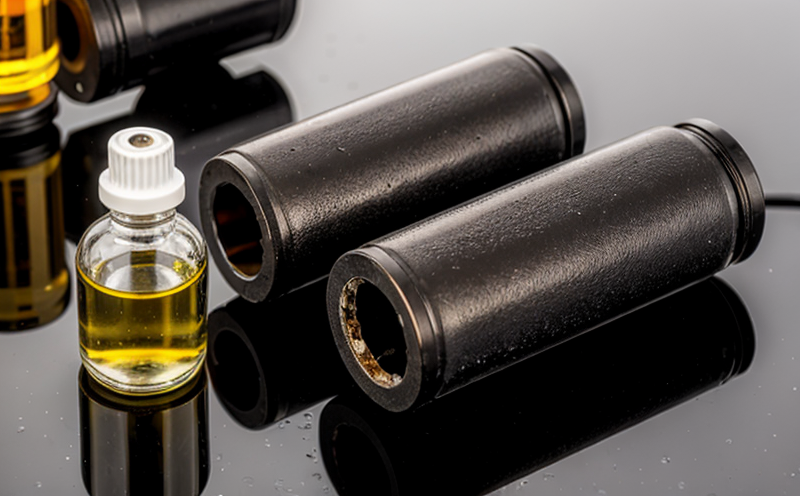ASTM D7679 Residual Fuel Oil Hydrocarbons Test in Water
The ASTM D7679 test method is a critical tool used to determine the concentration of hydrocarbons present in water samples, particularly those contaminated with residual fuel oil. This service plays an essential role in environmental and industrial sectors by ensuring that water quality meets regulatory standards and protects public health.
Residual fuel oil (RFO) is a heavy petroleum product often used in large industrial boilers or as bunker fuel for ships. When not properly managed, it can lead to significant environmental contamination if released into aquatic systems. The ASTM D7679 method addresses this issue by providing a reliable means of quantifying the hydrocarbon content in water samples.
The test involves several key steps: first, collection and preservation of the sample to prevent further degradation or alteration. Following collection, laboratory analysis is conducted using advanced chromatographic techniques such as gas chromatography (GC) coupled with mass spectrometry (GC-MS). These instruments allow for precise identification and quantification of various hydrocarbon compounds present in the water.
The ASTM D7679 standard specifies clear guidelines on sample preparation, calibration procedures, instrumental settings, and data interpretation. Compliance with these standards ensures accurate results that can be relied upon for decision-making processes related to environmental remediation efforts or industrial operations.
Understanding the hydrocarbon levels in contaminated water is crucial not only from an ecological perspective but also due to potential health risks associated with exposure to certain types of hydrocarbons. By accurately determining these concentrations, laboratories like ours contribute significantly towards safeguarding both human and ecosystem well-being.
In conclusion, the ASTM D7679 test serves as a vital component in monitoring water quality across various industries and environments where residual fuel oil contamination might occur. Its application helps maintain compliance with relevant regulations while providing valuable insights into potential sources of pollution and their impact on natural resources.
Why It Matters
The ASTM D7679 Residual Fuel Oil Hydrocarbons Test in Water is crucial for several reasons:
It ensures compliance with environmental regulations aimed at protecting water bodies from contamination by residual fuel oil.
By accurately measuring hydrocarbon levels, it aids in identifying sources of pollution and facilitates targeted remediation efforts.
The test results are important for assessing risks to human health and aquatic life exposed to contaminated waters.
It supports informed decision-making regarding industrial practices that involve the use or disposal of residual fuel oil products.
In summary, this testing method contributes significantly to sustainable development goals by promoting cleaner environments and safer workplaces.
Benefits
The benefits of using our ASTM D7679 Residual Fuel Oil Hydrocarbons Test in Water service extend beyond mere compliance; they encompass broader positive impacts on various stakeholders:
Environmental Protection: By accurately measuring hydrocarbon concentrations, we help prevent further degradation of water quality and promote ecological balance.
Risk Management: Organizations can use test results to identify high-risk areas for intervention, thereby minimizing potential health hazards.
Cost Efficiency: Early detection allows companies to implement cost-effective corrective measures promptly before extensive damage occurs.
Reputation Enhancement: Demonstrating commitment to environmental stewardship improves an organization's reputation among clients and stakeholders alike.
Overall, this service fosters a culture of responsibility and proactive management in handling industrial wastes and pollutants.





